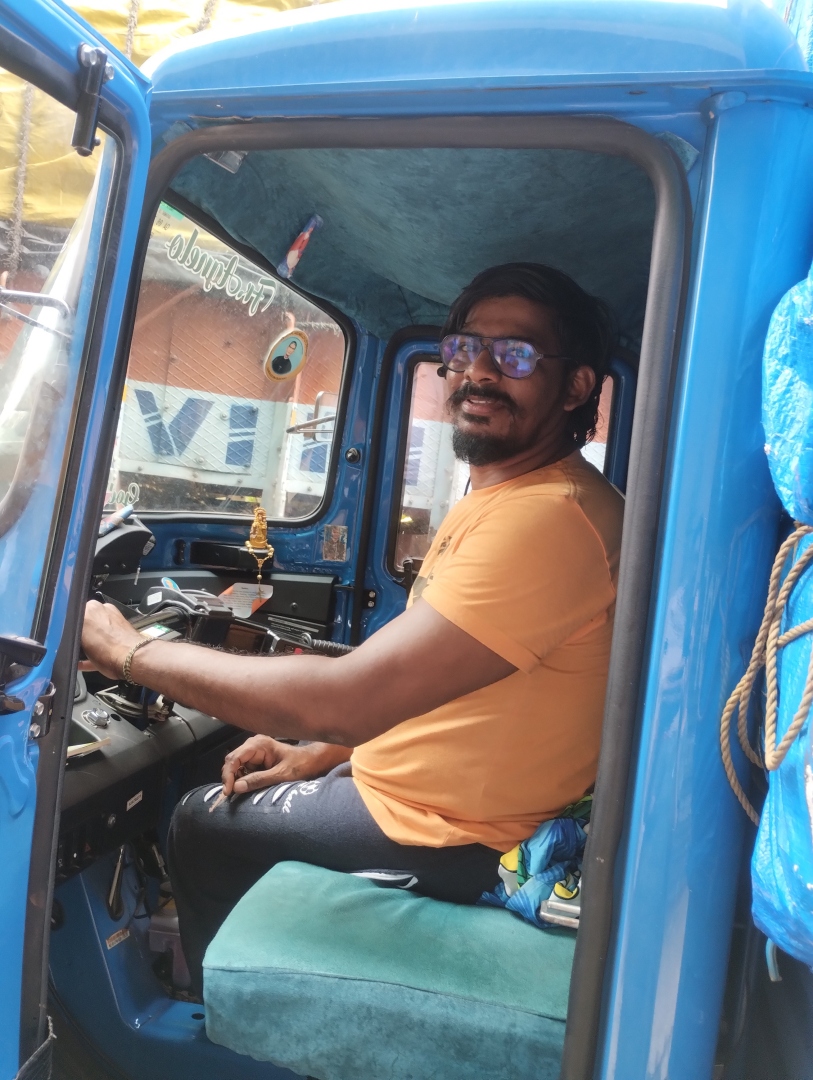
PANAJI
Domingos Goes starts his day around 2 am, heading to Velsao beach with his goods carrier to meet the ramponkars, who await him with their catch for the Margao wholesale fish market. Despite being 45 years old and having polio in both legs, which makes him 100% disabled, Domingos has learned to drive modified versions of two-wheelers, three-wheelers, and four-wheelers. He earns his living as a commercial vehicle driver. This routine has been ongoing for a very long time without a single day off.
“Getting my driving licence was a tough three-year struggle,” recalls Domingos, who is married with a working wife and an eight-year-old son. “The doctor would examine my lifeless legs and reject my application. Then, the officer at the RTO wouldn’t consider my application without the doctor’s certificate. It was challenging to convince them both that my vehicle was already modified, and I could drive it easily.”
After several trips ferrying fishermen and fisherwomen from his village, Velsao, to the city market, Domingos takes a short break before gearing up for more trips during the day.
Domingos doesn’t just transport fish in his goods carrier; he also carries machinery, nets, vegetables, and other items during the day. Always prepared for any commercial trip, he’s a self-sufficient man who aims to be helpful rather than a burden to those around him. Domingos takes care of his son, Valrick, during the day, dropping him off at school while his wife, Branda, goes to work in the Verna industrial estate.
Reflecting on his childhood in his quiet village, Domingos remembers attending Infant Jesus Academy in Velsao until completing his SSC. He was the eldest son in a family of ramponkars. “We were a family of fishermen. My father went to sea for fish, and my mother sold them in the market. I had two siblings, and being the oldest, I felt the responsibility keenly. When I was struck with polio as a child, my father struggled and turned to alcohol, leaving him constantly unwell. He stopped working, so my mother had to support the family alone. We faced financial hardships, and despite being good at studies, I couldn’t pursue higher education. These tough times since childhood have made me resilient,” says Domingos, whose father Agnelo passed away in 2007, while his 69-year-old mother Mingelina lives with him.
Domingos reflects, “Life has taught me many lessons.” He learned to drive on his own, starting with a three-wheeled cycle. As a teenager, he used to deliver milk packets for a general store to earn some money after finishing his SSC. “I wanted to become a mechanic and enrol in an ITI, so I worked hard to save for the fees,” he recalls.
“But the financial and physical challenges of travelling outside my village to college every day made it impossible. So, my dream of further education was put on hold forever,” he laments. However, he didn’t give up. He registered at the employment exchange office and obtained his employment card to seek a job.
“I attended many interviews but was never chosen. Losing hope of securing a government job, I decided to make a living through hard work. Driving came to my rescue. If I could ride a three-wheeled cycle, I thought, I could also try a three-wheeler scooter. Learning to drive and earning became my lifeline. After the scooter, I purchased a second-hand modified car from Dr Vithal Rane, who also has polio and uses crutches. Dr Rane mentored me on driving his Maruti 800, which I drove for 11 years. He convinced me that people with disabilities can obtain a driving licence. With his encouragement, I approached the RTO, saw the medical officer, and finally got my licence in 2000,” says Domingos.
He has shown that polio hasn’t prevented him from being a self-sufficient person who earns a living with dignity.
“Despite my determined spirit and desire to earn a living independently, I faced different battles,” says Domingos. For over three years, his access road was blocked by neighbours, leaving his vehicles unused. Unable to drive, his car and rickshaw turned to scrap. After a long struggle with various government departments, submitting applications and providing evidence, he finally got his access road reopened.
“I couldn’t earn a living by driving, so my wife had to work to support us,” he explains.
“Finally, in June last year, the access road was reopened. I bought a new goods carrier, a second-hand car, and received a three-wheeler bike from the government. Now, life is back on track,” Domingos concludes.